
From the first NES games to the present day, Captain Tsubasa accumulates a good amount of titles, with different approaches. We review all.
Captain Tsubasa is a series that will always remain in the collective memory of a generation. In Spain, renamed Oliver and Benji, it served many as an introduction to Japanese animation, along with other classics such as Dragon Ball or Knights of the Zodiac, coinciding in a time of special splendor for these works in our country – animated drawings at 20.30 in national televisions, what idyllic times …-. But its reach reached the entire Spanish-speaking universe football fan, with that unreal but epic way of describing the king sport, with its endless fields and impossible shots that more than one would try to reproduce in their sessions with the ball.
Given the incombustible popularity of his characters, it is not surprising that there are numerous games that allow us to live the adventures of Oliver (Tsubasa Oozora), Benji (Genzo Wakabatashi), Tom (Taro Misaki), Marc Lenders (Kojiro Hyuga) and the rest of stars that so many good times had made us spend with a good dinner sandwich. Unfortunately, many of them stayed in Japan and we could only play them through importation or years later, thanks to efforts in translating roms by a dedicated community. Now, on the occasion of the announcement of Rise of the New Champions for PS4, PC and Switch, we are entering a journey in the trajectory of this iconic saga in video games.
- Captain Tsubasa: Dream Team, one of the best options available
- Impressions Captain Tsubasa: Dream Team
Captain Tsubasa (Famicom, 1988, Japan)
It was the first known game based on the series and with it Tecmo laid the foundations of what would be its passage through the middle. The company had devised a system called Tecmo Theater that had used spectacularly to provide Ninja Gaiden with powerful cinematic scenes with great characters that occupied the screen, a novelty in the 8-bit Nintendo. With that system as a starting point, a turn system was devised in which the focus was placed on the character with the ball, creating a system between the RPG and the strategy, which also allowed to reproduce the spectacular scenes with the special shots, the stops and other characteristic elements of Yoichi Takahashi's work.
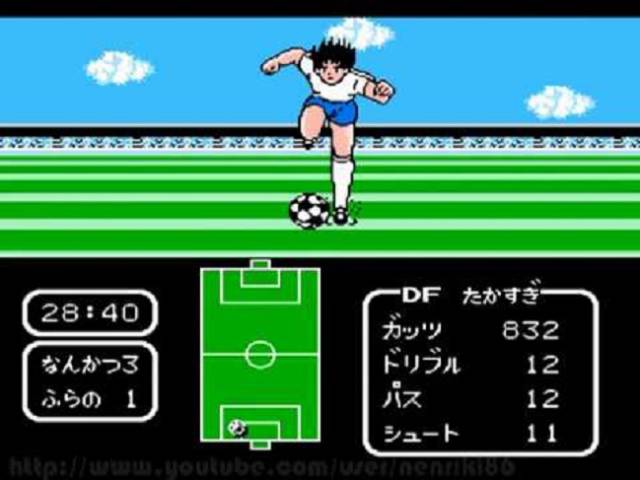
There he goes with the ball on his feet
Captain Tsubasa 2: Super Striker (Famicom, 1990, Japan)
Given the success of the first, Tecmo returned to the charge in a clear example of "more and better", consolidating the style of play created with a round title that improved and polished numerous aspects of the original. In addition, it had a novel point since the original series had ended and that allowed us to place the action three years later, with the players starting to face their professional stage. Possibly one of the best games based on the license and the favorite of many.
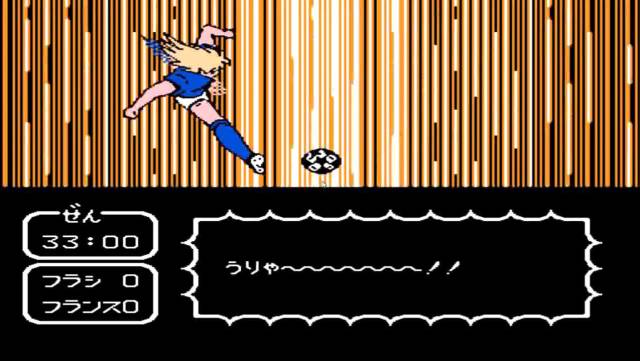
and none can stop them
Tecmo Cup Soccer / Football Game (NES, 1992, USA and Europe)
Tecmo understood that the formula he had found could succeed in international markets against more traditional soccer games and arcade. Unfortunately, as it was sadly usual at the time, the Japanese company was convinced that Tsubasa's license and manga aesthetics would be an obstacle to selling in the western market, so he adapted the first game but eliminated all references to Takahashi characters and changed the sprites to a western comic aesthetic, with Tsubasa transformed into "Robin Field". The good news is that a version arrived in Spain that changed "Soccer" to "Football" and translated in our language, which was not usual at the time – even if the license had been retained it would have been a real sensation.
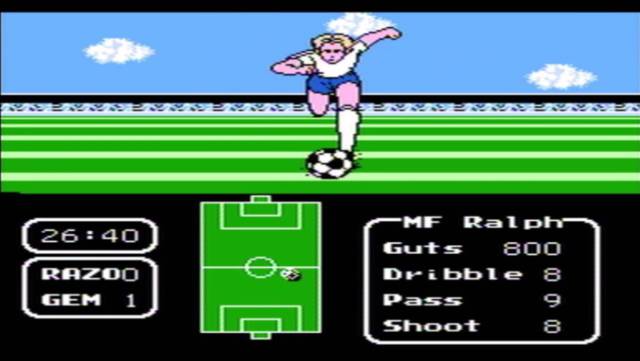
the stadium vibrates with emotion
Captain Tsubasa Vs (Game Boy, 1992, Japan)
The first Tsubasa in portable format is a careful adaptation of the first game for NES, made with care to avoid losing impact on the small monochrome screen of Game Boy. It also incorporates some novelties, such as a final confrontation beyond the final with Germany, in which we face a Dream Team of the best rival players we have faced, led by the "son of God": Carlos Santana. A challenge.
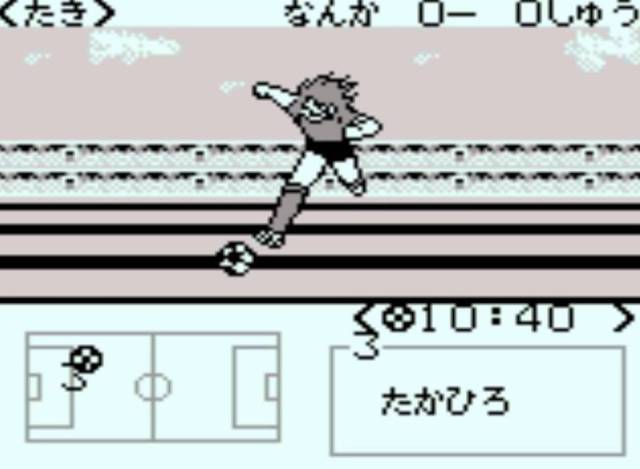
of watching both of us play, both
Captain Tsubasa III: Kotei no Chosen (Super Famicom, 1992, Japan)
Tecmo made a decisive leap to the successful 16-bit platform as soon as it had the chance, given its dominant position in the Japanese market. As with Vs, Tecmo preferred to pull an established base and make an adaptation of the second game, with the expected jump in graphics and audio that allowed the console. An approach perhaps too cautious, but safe.
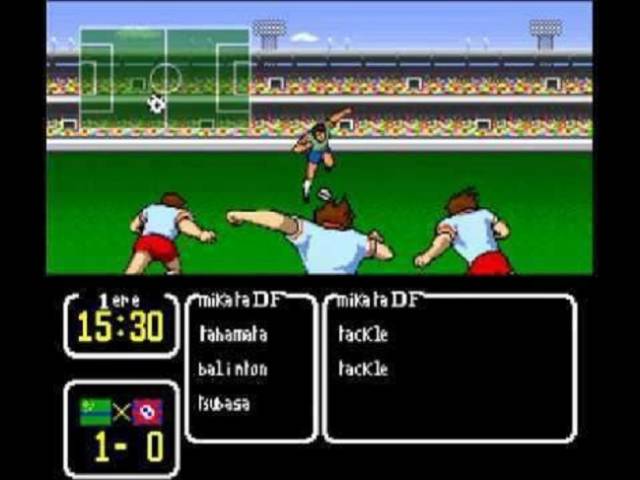
They only play to win
Tecmo Cup Football Game (Mega Drive, 1992, Canceled)
Tecmo Cup's story is absurd and sad. Sega obtained the rights of Tecmo to reprogram his game and his "cinematic shooter" system, which he adapted in a story of his own without the characters of Takahashi but with all the style and spectacularness of the saga, using the power of 16 bits to give him a important audiovisual jump. The idea was to launch it in Europe and we even saw a demonstration in a promotional video in the missing Super Games magazine that left us with long teeth. But with the game already developed, Sega Europe vetoed its launch along with other Japanese titles for a redistribution of resources, which led to other international releases such as Splatterhouse III or Golden Ax 3. Only thanks to the emulation and conservation of a prototype its definitive loss could be avoided.
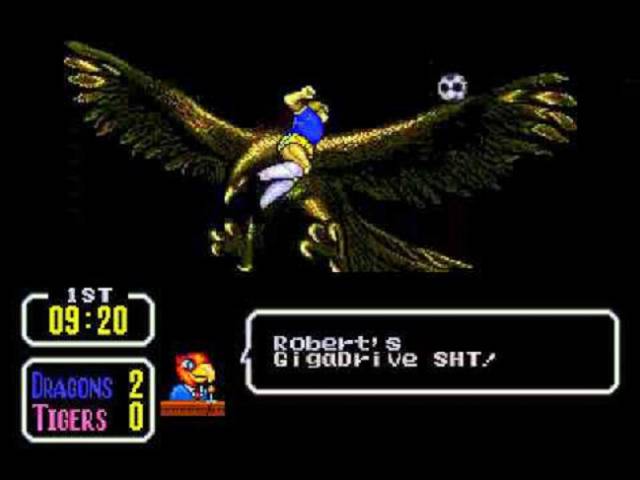
but always with sportsmanship
Captain Tsubasa IV: Pro no Rival-tachi (Super Famicom, 1993, Japan)
With more confidence with the 16 bits, Tecmo took Kotei no Chosen as a base and improved it in all sections, advancing in history. Details such as graphics and, especially, the animations were improved, but what makes it especially memorable is the extension of the story mode, with four alternative routes that gave more life to the whole. It also had a Vs mode in which we could play with any team and selection, or create our ideal team ourselves, giving the whole a lot of variety.
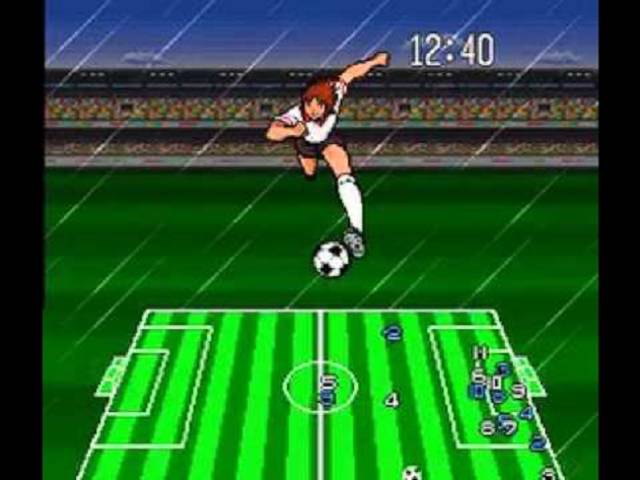
and there is no one better
Captain Tsubasa (Mega CD, 1994, Japan)
The only Tsubasa game that officially came out on a Sega console. It is an adaptation of the work that was done with the canceled Tecmo Cup although, now, with the original characters and the use of the CD format to include dialogues and cinematic scenes, offering a fancy product for the fan – it's a pity that his plot arc stays In the initial youth competitions and do not reach the international junior tournament.
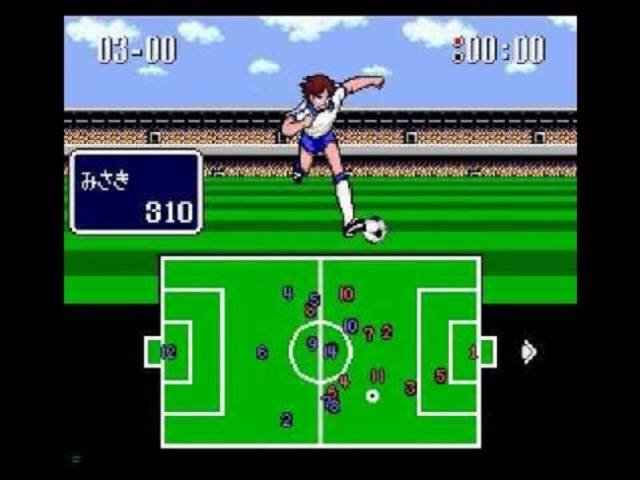
for the hobby …
Captain Tsubasa 5: Hasha no Shogo Campione (Super Famicom, 1994, Japan)
The latest Tecmo game based on Captain Tsubasa and the end of an era. Despite remaining faithful during numerous deliveries to the Theater system in turn, Tecmo decided on this occasion to create a new real-time system that tried to combine the tactical options we had always had with the emotion of directly controlling the characters on the ground of own game of an ISS or a FIFA. The result is interesting, a breath of fresh air that was accompanied by a good technical accompaniment and an attractive story arc, with the characters living the experience of competing in the prestigious and difficult Italian Serie A.
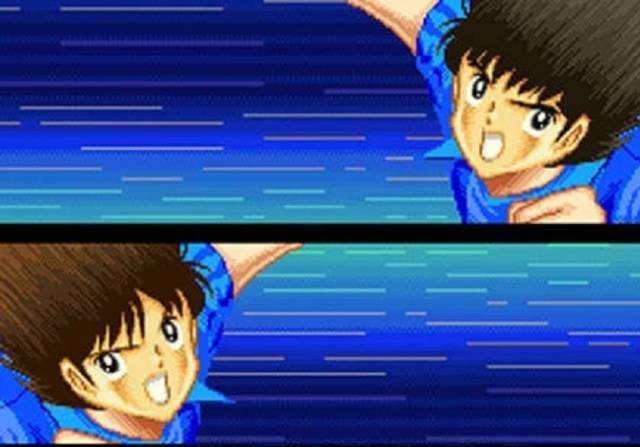
Oliver, Benji, the wizards of the ball
Captain Tsubasa J: The Way to World Youth (Super Famicom, 1995, Japan)
Bandai took the reins of the saga here and the beginning could not be worse. This delivery was very colorful, but in an excess of realism those responsible bet on a very rare, frontal perspective, perhaps looking for a certain "3D effect" so that the game did not seem "outdated" against the emergence of 3D in the market of masses. The end result is decidedly rare, although it could be much better if some alternative decisions had been made.
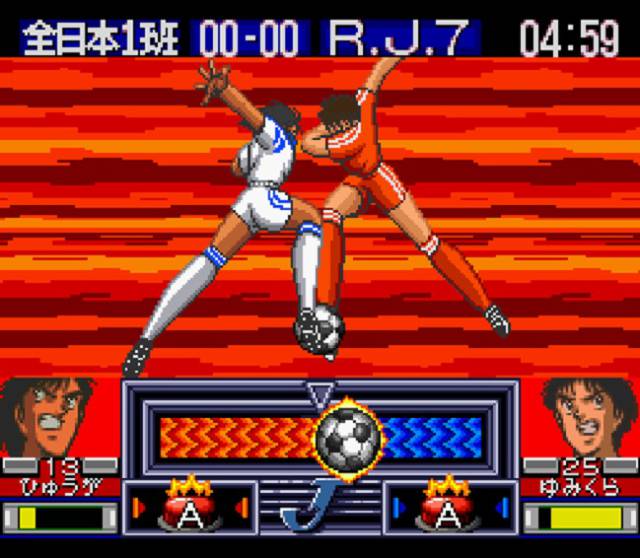
Benji, Oliver, Champion dreams
Captain Tsubasa J: Zenkoku Seiha e no Chosen (Game Boy, 1995, Japan)
Seiha no Chosen is a forgettable game with a reduced plot and limited in many playable aspects, buried by a remarkable graphic presentation for the machine, but very inefficient for the player. A new example of surface on Bandai substance.
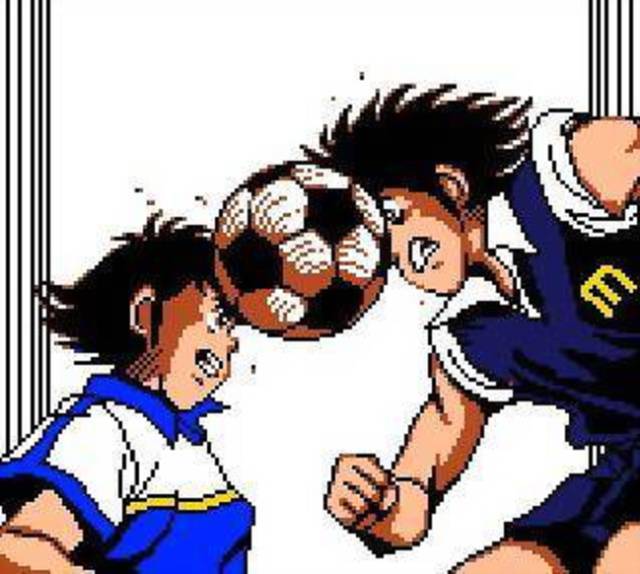
Benji, oliver, football is his passion
Captain Tsubasa J: Get in the Tomorrow (Playstation J, 1995, Japan)
After two poor projects, Bandai was intoned a bit with the entry into Playstation, offering a game that, despite how modest it was, brought something of its own value and introduced the saga fully into 3D – poorly, but there it was. The real-time control system with role elements is again wagered, being able to develop the characters and get them to learn new shots and techniques. It is not, by far, Tsubasa's best game, but the animated cinematic sequences that were included are a real delight for the fan.
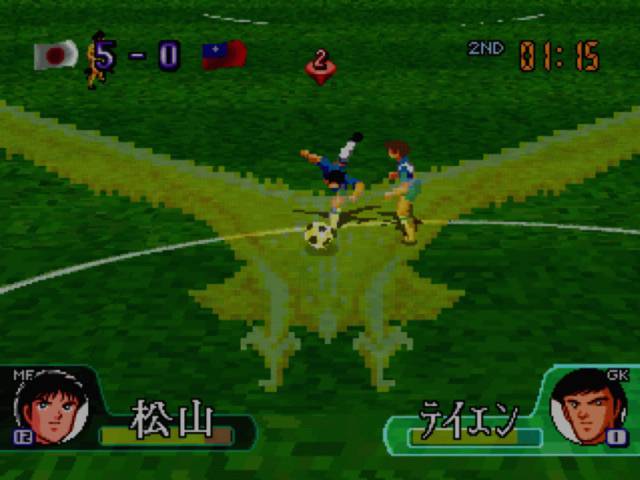
Oliver, Benji, the wizards of the ball,
Captain Tsubasa: Aratanaru Densetsu Josho (Playstation, 2002, Japan)
Bandai should not have worked very well his first attempt with the series, so after the continuous pace of releases with Tecmo, it would be years of drought for fans until Konami took the rights of the manga to launch their own games ( that they would also stay in Japan). With good judgment, Aratanaru Densetsu Joshon abandons the real time that had not finished setting and embraces the pure strategy, presenting a colorful title, full of possibilities and with four different routes in its story mode.
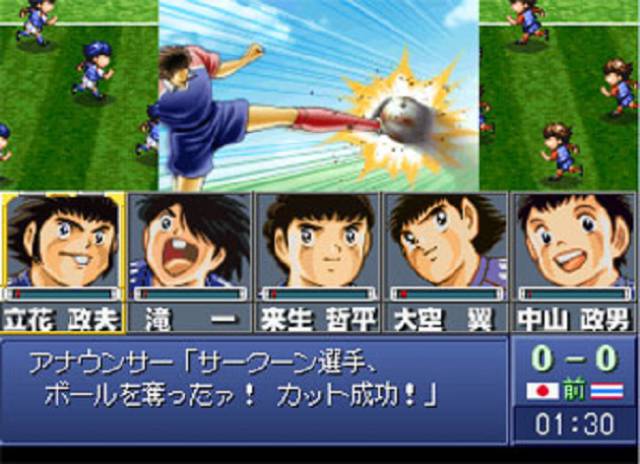
Benji, Oliver, Champion dreams,
Captain Tsubasa: Eikou no Kiseki (GBA, 2002, Japan)
Konami attacked three different platforms with three differentiated games (the manga had celebrated its 20th anniversary since its initial publication and was in the minds of fans). The portable one would be another strategy game, but more differentiated from Tecmo's original formula, with a card system that allowed many combinations although it also made it a bit cumbersome until you learned the rules and small details, which is when you gained traction .
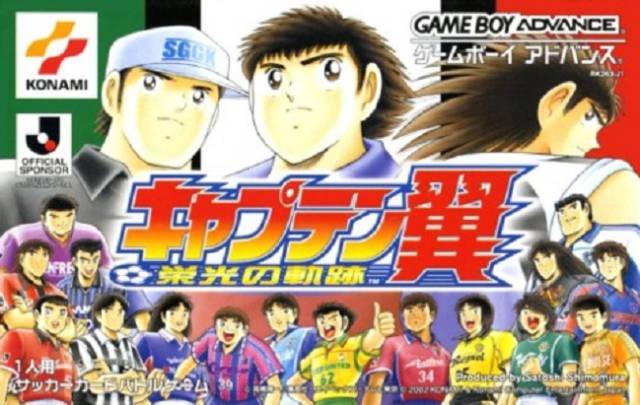
Benji, Oliver, football is his passion
Captain Tsubasa: Ogon Sedai no Chosen (Gamecube, 2002, Japan)
Of the title triplet launched by Konami that year, Ogon Sedai no Chosen is the most groundbreaking with tradition and the most curious. Here we do not control the classic team with Tsubasa in his career for the win, but we focus on a single protagonist, a footballer created for the occasion that through training, discipline and interaction with the famous players of the series, must rise as one of the options in the Japanese team. The game has elements of Live Sim, leaving us freedom in how we develop the character and how we manage his days, calendar, training, breaks … The closest thing to getting ourselves into the series.
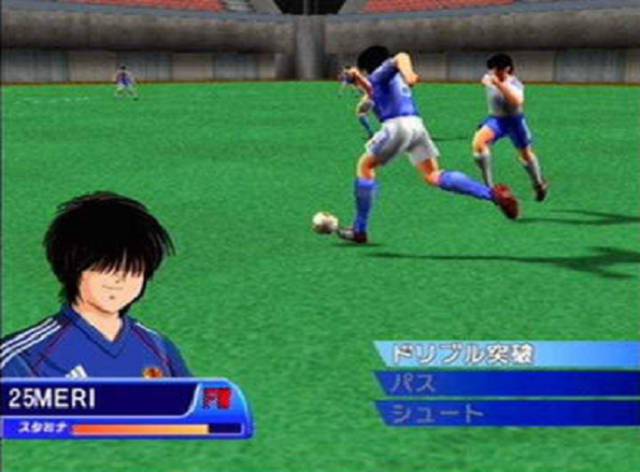
you have to score another goal …
Captain Tsubasa (Playstation 2, 2006, Japan)
After another four years of stoppage, Bandai returned to recover the saga of his wide trunk of available licenses and commissioned Natsume a new game for PS2 based on – as not – the first arc with the youth tournaments and the international cup for selections with The final against Germany. The control is limited to a single player and all actions are based on a comparison of figures and pressing the buttons at the right time, giving each entry, dribble or shot a certain intensity – although the little QTE lovers surely do not They will look like this. A competent game that successfully uses the trick of nostalgia to boost its visual presentation.
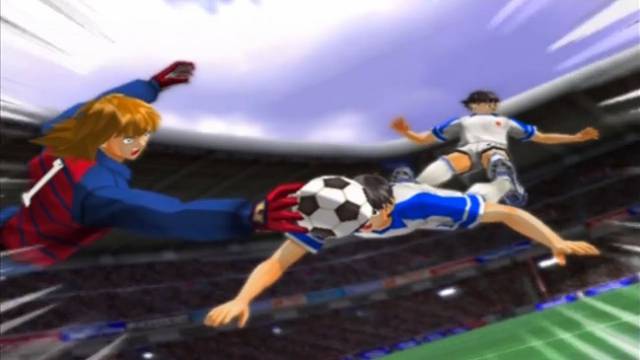
Oa, or oh!
Captain Tsubasa: New Kick Off (NDS, 2010, Japan and Europe)
And again another great break to a new title of Tsubasa, yes, with the great novelty that someone in Konami remembered the popularity of the saga outside Japan and made the effort to license the rights abroad, leaving New Kick Off as the first official game of Captain Tsubasa that comes out in Europe, 22 years after the release of the first in Japan. It is not the best delivery and derivative freckle for those who have a history with previous games, but it is a decent title that drinks from the formula left by Tecmo, with that system mixed between RPG and strategy with which the best chapters were signed.
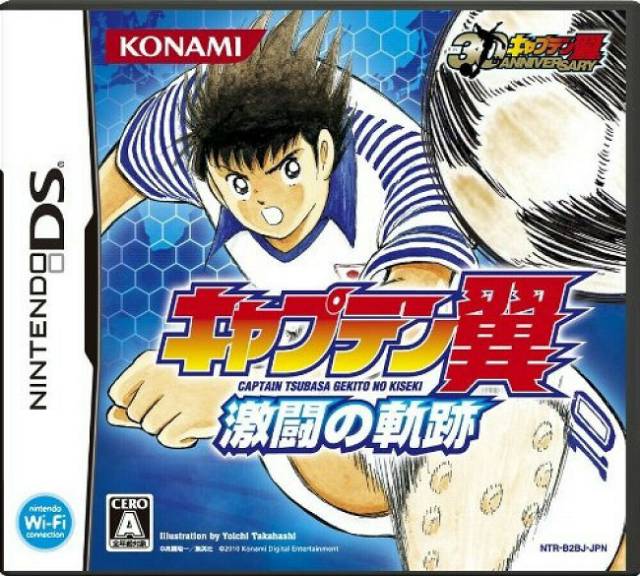
Benji, Oliver
Captain Tsubasa: Dream Team (Mobile, 2017, World Cup)
When it seemed that Oliver was already sleeping the dream of the righteous, the developer Klab Games resurrected the series with a mobile adaptation using the Gatcha format, in a game that correctly captures the nostalgia for the characters, moments and special movements that form the essence serial. Of course, all tied to a monetization system that forces you to choose between time and money to get the most out of it and build the team of your dreams.
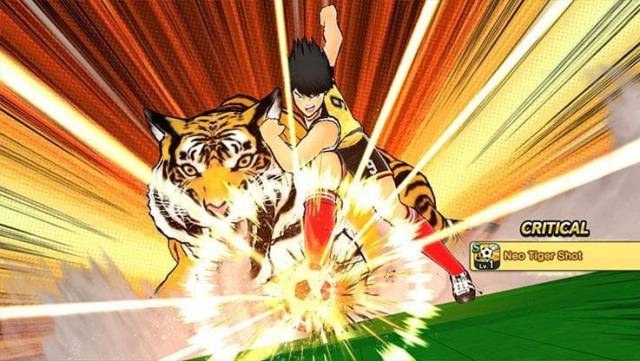
Benji, Oliver
Captain Tsubasa ZERO: Miracle Shot (Mobile, 2019, World)
The latest Tsubasa-based game, before the welcome announcement of Rise of the New Champions, is another mobile title based on character collection, with a fairly familiar game system based on improving your favorite characters based on time or money , with the usual command system once we are on the pitch to make passes, dribbles or special shots.
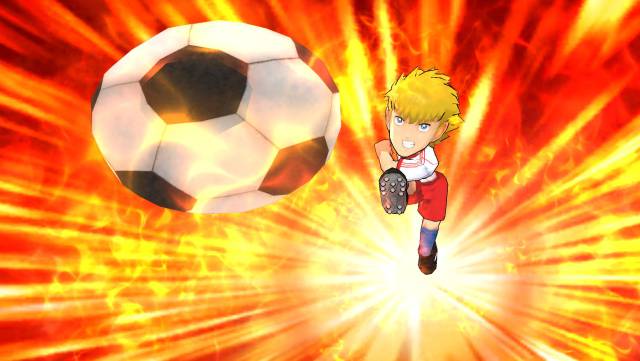
Benji, Oliver …

